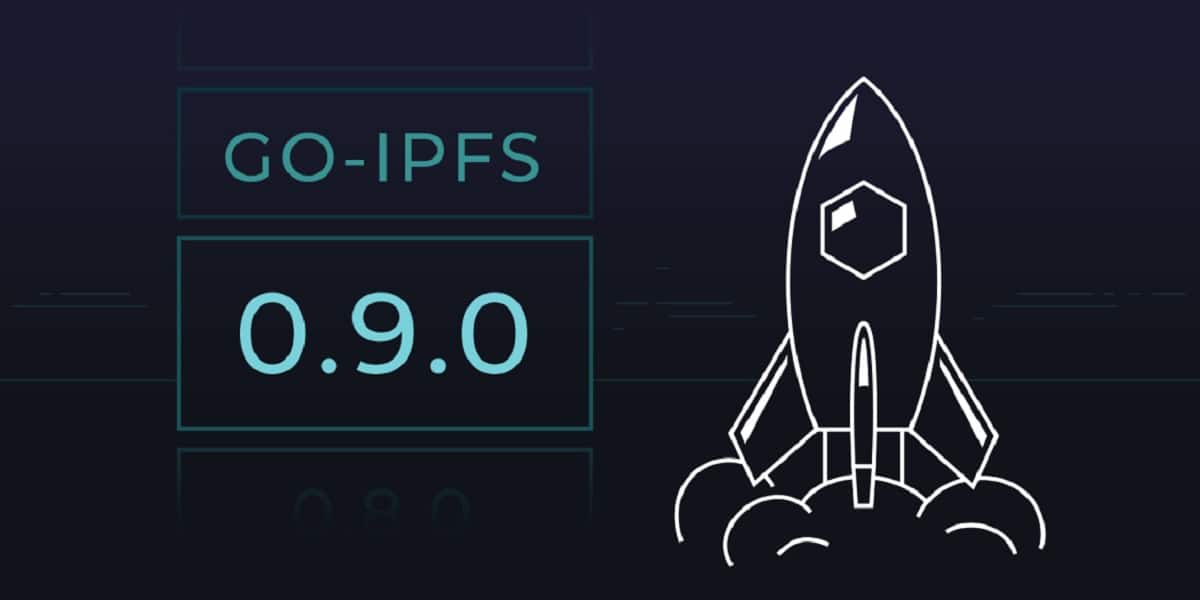
Recently the launch of the new version of the decentralized file system IPFS 0.9 (InterPlanetary File System) in which it is highlighted that go-ipfs is even more configurable, as well as the major fixes, critical security fixes and that some uncommonly used features are also being deprecated or removed to make it easier for users to discover the easy ways to use go-ipfs safely and efficiently.
For those who are unfamiliar with IPFS, they should know that in this file system a file link is directly related to its content and includes a cryptographic hash of the content. File address cannot be arbitrarily renamed, it can only be changed after changing the content. Similarly, it is impossible to make a change to the file without changing the address (the old version will remain at the same address and the new one will be available through a different address).
It forms a global versioned file store implemented in the form of a P2P network made up of member systems. IPFS combines ideas previously implemented in systems like Git, BitTorrent, Kademlia, SFS, and the Web, and resembles a single BitTorrent swarm (pairs that participate in distribution) exchanging Git objects. IPFS is addressed by content rather than location and arbitrary names.
Main new features of IPFS 0.9
In this new version that is presented of IPFS 0.9 gateways have the ability to load arbitrary IPLD (Linked Interplanetary Data, namespace to deal with hash-based resources) via the "/ api / v0 / dag / export" handler, which performs a similar function to the "ipfs dag export" command.
The export is done in the DAG file format (Directed Acyclic Graph). The resulting IPLD allows the user to verify that the data downloaded from the public gateway matches the requested symbolic name against which it can be verified for compliance with the content hash initially associated with the name symbol.
Another novelty that is presented is that provided the ability to define your own DNS resolver using the "DNS over HTTPS" protocol, which will be used instead of the resolution system in the operating system configuration. This includes overriding the resolver for individual top-level domains.
In DNSLink, a mechanism for linking regular DNS names to IPFS addresses, selective resolver replacement can be used to create domain names that are not related to ICANN, for example you can connect the resolver to handle top-level domains ».eth «, Which are not formally approved by ICANN.
In addition, the web interface (WebUI) has been updated with experimental support for pinning external services (analogous to the command "ipfs pin remote service") and the design of the screens to work with files and colleagues has been modified.
While for the CLI interface, now it is possible to export keys using the command "Ipfs key export" without stopping the ipfs process in the background.
It is also noted that an experimental DHT client was added for data recovery using a distributed hash table, which differs from the IPNS-based solution in higher performance and SECIO support was deprecated and disabled by default given the prevalence of support. TLS and Noise, SECIO support has now been completely removed.
Finally, too it is mentioned that the components for migration to new versions of go-ipfs are divided into packages separate to speed up loading and simplify organizing updates into configurations with their own plugins. The process of downloading updates over IPFS has been automated and settings have been added to simplify the application of updates in the absence of a network connection or being blocked by a firewall.
If you are interested in knowing more about it about this new released version, you can check the details in the following link.